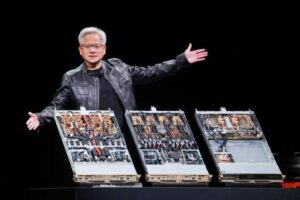Tokyo, 25 June, /AJMEDIA/
As artificial intelligence becomes the new foundation of global innovation, it’s no longer just talent or ideas that matter, according to TechRepublic. It’s also the hardware. And right now, that hardware is far from evenly spread around the globe.
A mere 32 nations worldwide, predominantly in the Northern Hemisphere, possess specialized AI data centers, leaving the vast majority of countries without this crucial technological infrastructure, according to a recent report by Oxford University researchers.
Key takeaways from the report include:
• The United States and China alone operate over 90% of specialized AI data centers.
• US tech giants, including Amazon, Microsoft, and Google, operate 87 major AI computing hubs globally, while Chinese firms operate 39. European companies operate only six.
• Africa and South America are nearly absent from the map.
• More than 150 countries lack such infrastructure altogether.
Inside these facilities are high-powered chips, made mainly by NVIDIA, that power the most advanced AI tools. Without access to them, countries fall behind in AI development, scientific research, and even economic competitiveness.
The divide isn’t just about infrastructure, it’s about sovereignty. Without their own AI data centers, many countries are forced to rely on foreign tech giants for computing power. Renting access to data centers overseas is expensive, often slow, and governed by foreign laws. For start-ups and researchers in regions such as Africa, South America, and parts of Southeast Asia, this presents a significant challenge.
“The A.I. era runs the risk of leaving Africa even further behind,” said Microsoft President Brad Smith, according to The New York Times.
In Kenya, startups like Qhala are developing large language models in African languages. However, without local data centers, they are compelled to rent time on servers located far away. “Proximity is essential,” said Shikoh Gitau, Qhala’s founder.
Kate Kallot, founder of another Kenyan startup, Amini, added, “If you don’t have the resources for compute… you can’t go anywhere.”
Powerful computing chips, especially those made by US firm Nvidia, are the lifeblood of these centers. They’re in such high demand that countries and companies are scrambling just to get in line. According to a survey cited by The New York Times, Harvard’s Kempner Institute alone holds more computing power than all African-owned AI facilities combined.
It’s led to real consequences. In Argentina, Professor Nicolás Wolovick runs what is considered one of the country’s most advanced AI hubs. His top students routinely leave for the US or Europe to access better computing environments.
In the Middle East, for instance, The New York Times reported that an Emirati firm agreed to avoid using Chinese tech in exchange for access to NVIDIA chips. Meanwhile, in Africa, policymakers are reportedly negotiating with Huawei to convert existing data centers to accommodate Chinese-made chips.









































